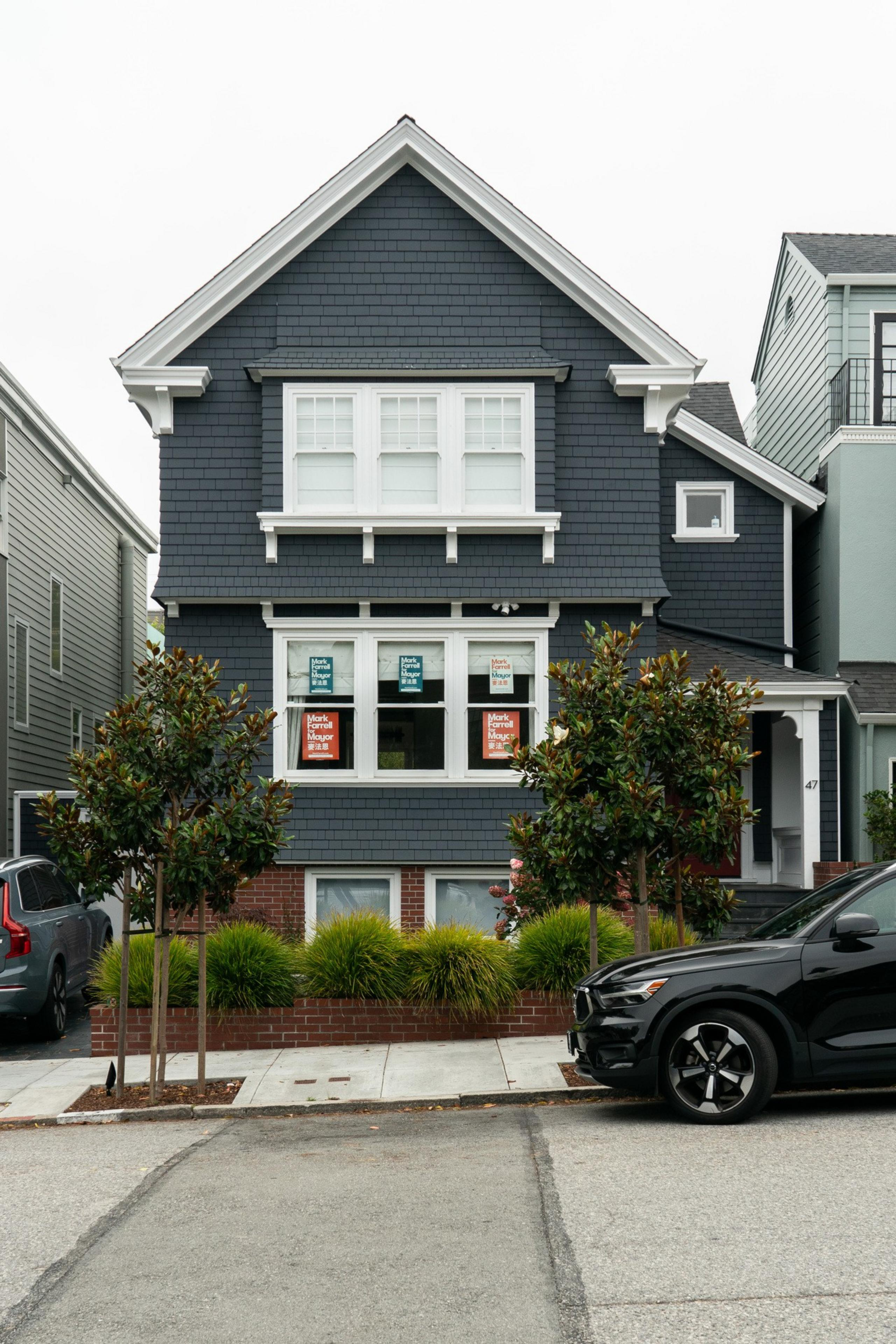When Mark Farrell bought his craftsman-style home in the Jordan Park neighborhood for an estimated $5 million, he had big plans. It was a 3,000-square-foot residence in a ritzy neighborhood, but it wasn’t quite right — he needed to transform it.
Farrell, who made the purchase in 2020, wanted to lower the floor into an existing crawl space to make room for a media room, office, and guest room. He planned a new patio and aimed to expand the deck. He also wanted to relocate a second-floor bathroom and replace a dozen windows, according to Department of Building Inspection permits. Farrell estimated the renovation would cost $455,000.
All that work takes time. But according to one highly placed source, Farrell did not want to wait.
Instead, Farrell, who had stepped down as mayor in July 2018, allegedly called a staffer in Mayor London Breed’s office and asked to speed up approvals for housing permits he planned to file. Depending on the timing of any such request for permit expediting, Farrell may have been afoul of a city ethics law.
The accusation comes from Breed herself, shared exclusively with The Standard.
“There was a phone call because the permits were delayed. He was doing a home remodel for some new place he was moving into,” Breed said in an interview.
Breed — who is running for reelection against Farrell and others — said she refused the request. Even today, two things irk her about that call.
For one, Breed said, it was ethically murky: “You don’t call the mayor asking for a favor like that when you’re a former mayor.” Secondly, Farrell hadn’t offered help after his exit from the mayor’s office. “This whole time I’ve not even heard from him, except when he wanted his permit expedited,” Breed said.
Farrell denied the allegation.
“Let me be crystal clear: any insinuation or accusation that I called Mayor Breed’s or City staff to receive preferential treatment is a bold face lie,” Farrell said in a statement.
After he bought his home in 2020, he called a longtime friend who was working in the mayor’s office to ask how long his planned permits would take, Farrell said.
“I explicitly told him during that conversation not to engage in my permitting process and that I did not want any help — just information about timelines,” Farrell said.

As plenty of homeowners have learned the hard way, San Francisco is notorious for its lengthy approvals process.
It can take nearly a year to process a permit to make full in-house alterations, according to data shared by the Department of Building Inspection. The median approval time for permits like Farrell’s in 2019 was nearly nine months, and the time frame hasn’t budged much since.
That makes for a hair-pulling experience for homeowners looking to make renovations, said Ernie Selander, a San Francisco architect with more than 50 years of experience dealing with the city’s byzantine process. He’s seen homeowners wait months, even years, to get the needed stamps of approval.
“They’re always very frustrated,” Selander said. “Everybody knows going into it that it’s going to take forever, but you don’t know how long.”
The city’s labyrinthine permitting processes opened the door for specialists who know how to game the system — sometimes legally, sometimes less so. Permit expediting is a regulated practice, and those who do it must register with the city. In recent years, the practice has drawn scrutiny after some expediters were accused of taking bribes related to their work, leading the city to blacklist them.
Moreover, the city charter bars officials from influencing government decisions at departments in which they served, within a year of ending their employment; for a mayor, that includes the entire city.

Breed’s office was unable to confirm the date of the call and could only say that it took place in 2019. Public records show Farrell first registered to vote from the Jordan Park home in 2020.
Legal or not, Breed said, the request demonstrates something about Farrell’s character: entitlement.
“To ask for what I felt was a favor made me very uncomfortable. It establishes a pattern of feeling like you are entitled to ignore the rules,” she said.
Farrell has trumpeted the need to clean up City Hall’s ethical lapses. After an investigation by The Standard found that the head of the Human Rights Commission signed off on $1.5 million in contracts to an organization run by her romantic partner, Farrell said Breed and another mayoral candidate, Daniel Lurie, “propped up” a system rife with fraud, waste, and cronyism.
He said Breed has endured too many scandals during her administration, including the indictment of top officials to being fined by the Ethics Commission for failing to report gifts, to cast accusations his way.
“Breed’s administration reeks of backroom deals and cover-ups, yet she has the gall to point fingers at others,” Farrell said.
Paul Melbostad, who served as president of the San Francisco Ethics Commission when it conceived the post-employment provision in 2002, said the law was crafted specifically to bar mayors from making unseemly requests of people they’d appointed to government — in that case, Mayor Willie Brown, whose penchant for exerting soft power throughout City Hall is widely known.
Appointees and employees may find it hard to say no to a former mayor, Melbostad said, and “that might compromise the public’s interest.”
The year-long limit was a compromise to get the rule approved, Melbostad noted. Even if Farrell’s call was legal, he said, “does it violate the spirit of the law? I would say yes.”
Editor’s Note: This story has been updated to clarify a description of Farrell’s alleged phone call to a staffer in the mayor’s office.